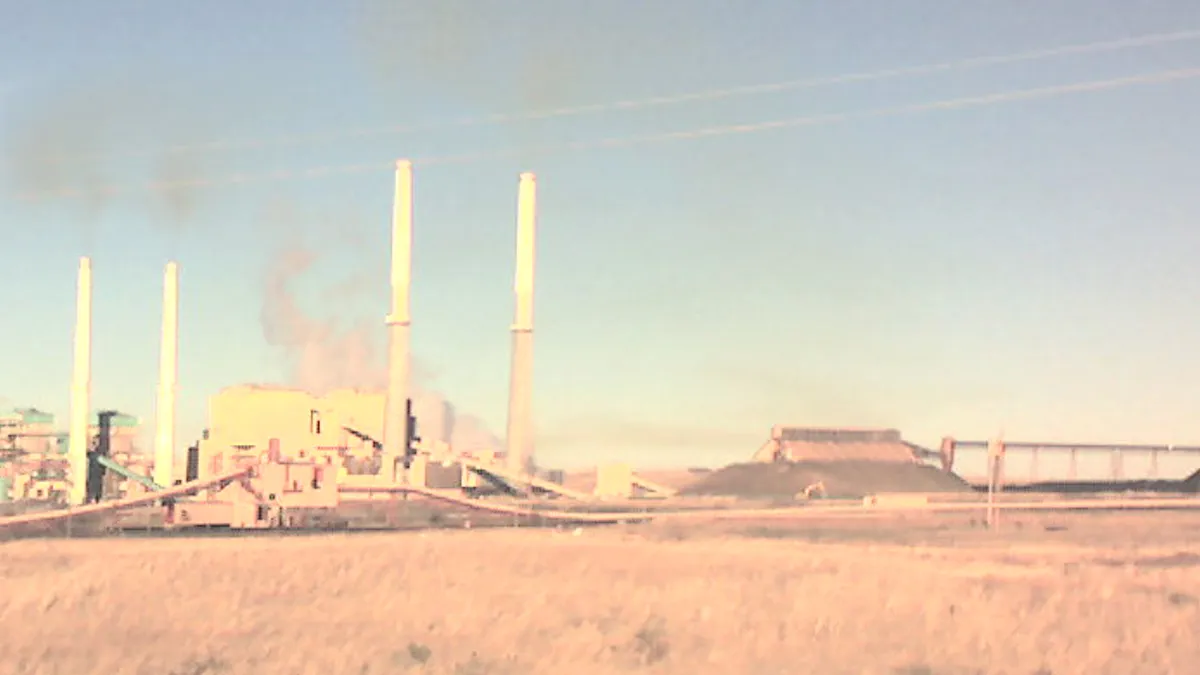Update: Wyoming Gov. Mark Gordon on Friday signed Senate File 159 into law, according to the Tribune Eagle. Utility Dive's original post on the bill's legislative passage follows.
Dive Brief:
-
Wyoming lawmakers last week passed a bill to encourage the sale of coal-fired power plants in a bid to extend their lives amid an industrywide trend of retirements.
-
Senate File 159 would direct utilities to attempt to find new buyers for coal plants before retiring them and proposing replacement generation. It passed both legislative chambers by wide margins last week and awaits signature from Gov. Mark Gordon, R.
-
In Montana, lawmakers are considering a bill (Senate Bill 278) to increase utility Northwestern Energy's ownership stake in the 2.2 GW Colstrip power plant. And in New Mexico, an 80% renewable energy bill moving through the legislature includes provisions to encourage the securitization of coal-fired power plants.
Dive Insight:
The energy proposals across the U.S. West illustrate how state lawmakers are responding to the market transition away from coal power in the face of inaction from the White House.
In Wyoming, the S.F. 159 would only allow utilities to recover the costs of building new power plants to replace retiring coal generators if they first make "a good faith effort" to sell the closing facilities. If a buyer can be found, the bill would direct utilities to purchase power from the plants back from the purchaser.
The bill comes after PacifiCorp, which owns Wyoming utility Rocky Mountain Power, said in December that 60% of its coal fleet is uneconomic, including plants in Wyoming.
In Montana, the so-called "save-Colstrip" bill would allow utility Northwestern Energy to buy a larger share of the newest unit of the Colstrip power plant for $1 and pass the costs onto its captive customers.
The utility currently owns 222 MW of the 778 MW unit, and CEO Bob Rowe wrote in an op-ed this week that it would buy no more than an additional 150 MW if the bill were to pass.
S.B. 278 passed the Montana Senate Energy Committee 9-4 late last month and is currently pending in the Senate Finance and Claims Committee. The bill must pass the Senate and move to the House before April 1, according to the Billings Gazette.
In New Mexico, coal developments come as part of a broad clean energy bill that would move the state's utilities to 80% renewables by 2040 and mandate that the remaining power come from zero-carbon sources.
The bill, Senate Bill 489, would allow utility Public Service of New Mexico to securitize the costs of closing its 847 MW San Juan plant, slated to come offline in 2022. That would allow PNM to issue AAA-rated bonds to recover stranded costs in the plant, which ratepayers would repay through bill surcharge.
One state lawmaker attempted to amend the bill in committee to allow the San Juan coal plant until 2030 to install pollution controls to comply with the bill. But the Corporations Committee rejected that proposal in a 5-3 vote, according to the Albuquerque Journal.
The attempts to save coal generation come as the Trump administration struggles to follow through on campaign promises to support the ailing coal sector. Last month, the Tennessee Valley Authority decided to move forward with coal plant closures despite public pressure from the President and Senate Majority Leader Mitch McConnell on Twitter.













